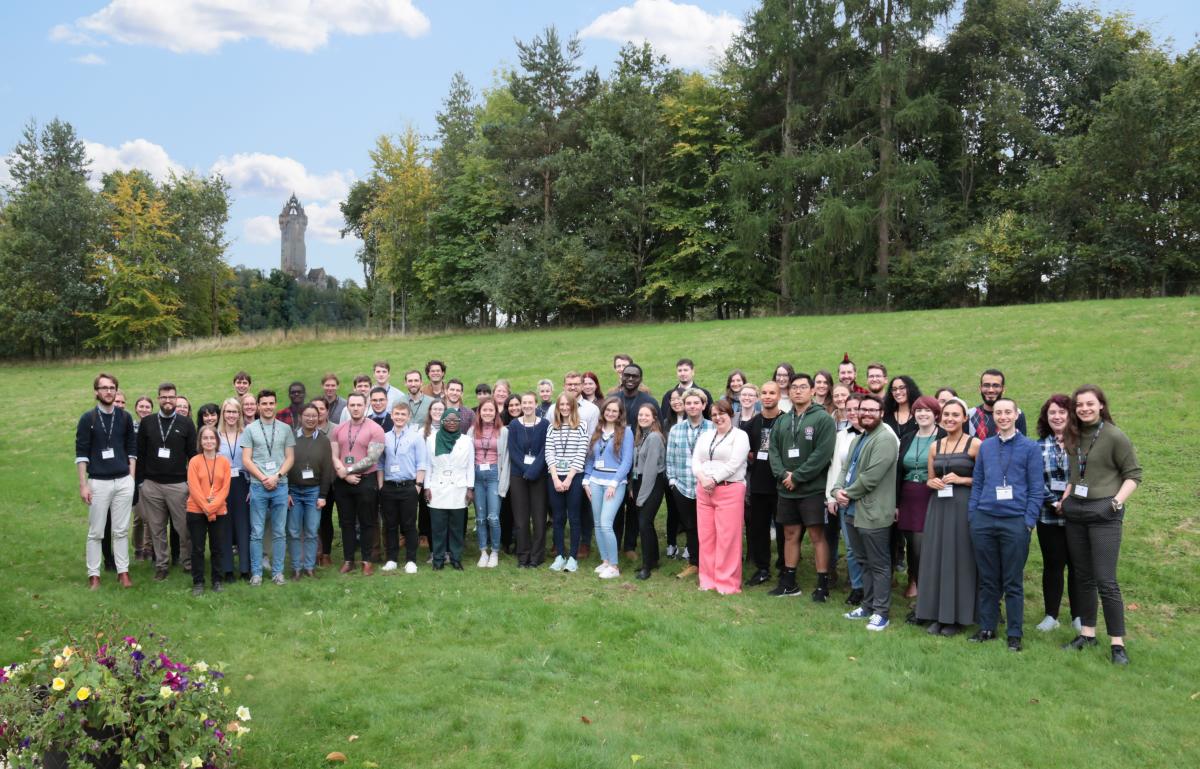
Find out more about our 2022 student intake by scrolling down this page.
Candace Adams
Institution: University of Edinburgh, School of Chemistry
First supervisor: Dr Matthew Horrocks
PhD project title: Dimers are forever: Shining a light on the origins of memory storage using single-molecule microscopy
Personal note: To follow
Temitayo Ademolue 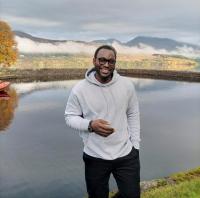
Institution: University of Edinburgh
Supervisors: Neil Mabbott and Liam Morrison
Personal note:
I am Temitayo (either Temi or Tayo is fine) and it's such a tremendous opportunity to meet you all. I have recently started my Infection and Immunity PhD at the Roslin Institute/R(D)SVS with Prof. Neil Mabbott (https://www.research.ed.ac.uk/en/persons/neil-mabbott) and Prof. Liam Morrison (https://www.research.ed.ac.uk/en/persons/liam-morrison) to investigate the impact of gastrointestinal helminths on susceptibility to African trypanosome infections. Both African trypanosomiasis and gastrointestinal helminth infections limit the profitability of the livestock industry, especially in sub-Saharan Africa. To study these infections, single infection models have been used either in mice or cattle, and these are not accurate representations of what happens in a clinical setting. Are co-infections with these diseases beneficial or more hazardous to the animals? And, how does the immune system as well as host cells responds to these individual parasites in co-infective conditions? These are the questions my PhD is set to answer with the intent of developing better control strategies in terms of vaccines and management practices.
I am a veterinarian by training and I completed my Doctor of Veterinary Medicine (DVM) from the premiere university in Nigeria (University of Ibadan) in 2018. After practicing for a year as a small animal and disease diagnostic practitioner, I moved to the University of Ghana under the World Bank's Africa Centre of Excellence Master of Philosophy Fellowship to study Molecular Cell Biology of Infectious Pathogens. Here I worked on African trypanosomiasis with the Theresa Manful Gwira Lab using cheminformatics and cytological assays to identify the drug targets of certain synthetic compounds from Novartis and the Medicine for malaria ventures. After my master's degree, I worked for the West African Centre for Cell Biology of Infectious Pathogens (WACCBIP) as a bioinformatician and a project coordinator for a SARS-CoV-2 sequencing training and support project jointly funded by Wellcome and FCDO.
Away from research, I enjoy walking and enjoying the lovely city of Edinburgh, cycling and playing the piano. I am also a co-conveyors of Global Scholarship Forum; an organization that provides information on travel abroad & scholarship opportunities, essay reviews and interview preparation tips to outstanding African students with dreams and passion to study outside their countries.
Haya Al Siyabi
Institution: University of Edinburgh
First supervisor: Dr James Minchin
PhD project title: Modelling age-related degeneration and regeneration of adipose tissue in zebrafish
Personal note: To follow
Katie Arnton
Institution: University of Dundee
First supervisor: Dr Davide Bulgarelli
PhD project title: A synthetic community approach to decipher the genetic basis of plant-microbiota interactions in the rhizosphere
Personal note: To follow
Gabriele Bagusinskaite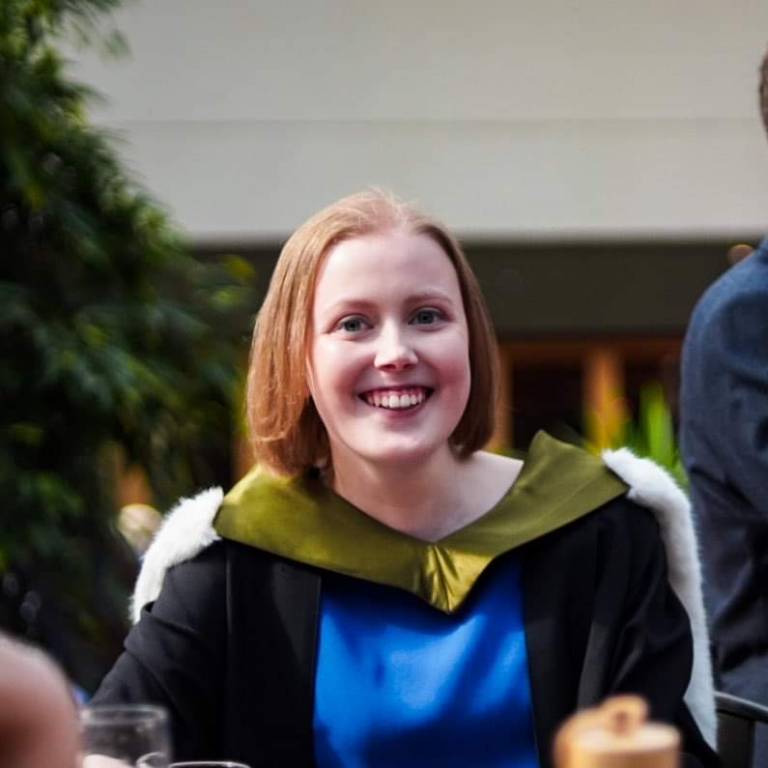
University of Edinburgh
Supervisor: Sander Granneman
Personal note: Hi! My name is Gabriele and I’m originally from Lithuania. I completed my undergraduate studies in Biochemistry at the University of Edinburgh where I worked on specific vertebrate RNA-binding proteins (RBPs). During my PhD I will focus on RBPs in methicillin-resistant Staphylococcus aureus (MRSA). More specifically, I will look into Rnase R enzyme and try to understand how it helps this bacterium adapt and thrive in harsh host environments. In the long-term, I hope this research will open up new avenues for the development of novel therapeutic approaches against MRSA. Besides research, I also love travelling and wine tastings.
Cameron Bathos-Samblas
Institution: University of Edinburgh
Supervisor: Dr Megan Davey
Co-supervisors: Prof. Neil Vargesson (Aberdeen), Mike McGrew (Roslin)
PhD Project title: How do fingers grow and can they regenerate
Personal Note: to follow
Samuel Bankole
Institution: University of Edinburgh
Supervisors: Professor Neil Mabbott & Dr Calum Bain
PhD project title: Macrophage diversity in the mucosal immune system
Personal note: To follow
Cathrine Baungaard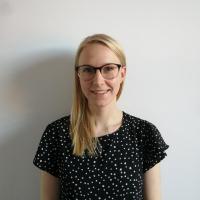
University of Aberdeen
Supervisors:
Baukje de Roos (University of Aberdeen), Jonathan Hillier (University of Edinburgh), Dave Little (University of Stirling), Graham Horgan (BioSS, University of Aberdeen)
Personal note:
Hi, my name is Cathrine (she/her)! I graduated in 2019 with a BSc in Nutrition from Liverpool John Moores University, where I conducted my dissertation research on sustainable nutrition and diets knowledge of nutrition students in the UK. Since then, I have had the opportunity to work on EU-funded sustainable diets/food systems projects as a Junior Manager at the European Food Information Council (EUFIC) and then as the Food Service Sustainability Advisor at the WWF-UK, where I was the technical lead on the sustainable diets workstream. Contributing and finding solutions for sustainable diets and food systems is what I am really passionate about, I get to do just that with my research! My research project will focus on modelling data on nutrition composition, environmental impact and price of seafood to develop a decision support tool to help users explore alternatives to current diets and highlight health, environmental and cost benefits of certain swaps.
In my spare time I am a documentary enthusiast, spicy food fanatic and have too many creative projects on the go (crocheting, macrame, you name it).
Phoebe Beal
Moredun Research Institute/University of Edinburgh
First supervisor: Dr Adam Hayward
PhD project title: Living with parasites: exploring tolerance of infection to reduce the impact of gastrointestinal nematodes on sheep
Personal note: To follow
Eleanor Birch 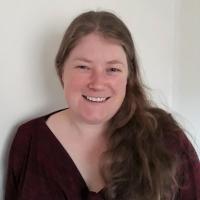
University of Edinburgh
Supervisor: Nicholle Bell
Personal note:
I graduated with an MChem in Medicinal and Biological Chemistry from the University of Edinburgh, having done the early part of my degree with the Open University. I am returning to the University of Edinburgh School of Chemistry to do a PhD in the Bell group. The Bell group aims to understand the molecular basis of peat formation and degradation to facilitate monitoring of restoration intervention effectiveness, especially in relation to carbon capture or release. They do this by analysing near-natural, damaged and restored peatlands in the UK, and elsewhere in the northern hemisphere. My project will approach this from a biochemical perspective; using metagenomics to look at the microbiome present and active, high resolution spectrometry to characterize the metabolites produced, and new methods for examining enzymes, with a focus on phenol oxidases identified as central to the ‘enzyme latch’ theory of peat formation. In my free time, I enjoy hillwalking, running a Guide unit, and sewing my own clothes.
Alistair Bonsall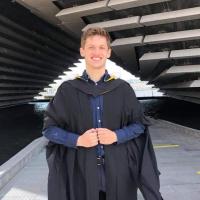
University of Dundee
First supervisor: Profess Nicola Stanley Wall
Second supervisor: Dr Cait MacPhee
Personal note:
I have just recently graduated with an integrated master's degree in microbiology from the University of Dundee. My current research interest is that of bacterial ‘warfare’ i.e., the mechanisms that bacteria have evolved to outcompete their bacterial competitors along with the ways those microbial interactions can be exploited for human good. As a part of my honours project, I studied the T6SS nano-weapon employed by Serratia marcescens while my master's project utilised experimental evolution to investigate intraspecies competition in Bacillus subtilis biofilms. My EASTBIO PhD project aims to uncover the molecular mechanisms that underpin B. subtilis’ capacity to dominate competing strains. Through this research, we might be able to better integrate a beneficial plant growth-promoting strain of B. subtilis into the microbiome of a crop that already contains resident B. subtilis isolates. Outside of the lab, when I’m not distracting myself with a podcast/movie, I enjoy triathlon and too much coffee.
Beth Bridge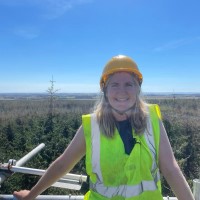
SRUC/University of Edinburgh
First Supervisor: Dr Alistair Hamilton
Second Supervisor: Dr Elisa Fuentes-Montemayor
Personal note:
Hello, I’m Beth (she/her) and I’ll be working towards identifying the biodiversity benefits of integrating trees into agricultural land. As the UK redefines its agricultural policy after Brexit, there is a big push to encourage tree planting on farms to meet NetZero targets and help combat climate change. However, there is little guidance or awareness around planting trees on farms to also promote biodiversity. My work will aim to identify how to integrate trees into farms for biodiversity and assess how amenable farmers are to planting trees in different configurations, for example setting aside entire fields for trees or integrating trees into livestock pastures.
I graduated from the University of Birmingham with a BSc in Environmental Science and then I went on to graduate with an MRes from the University of Bristol in Animal Behavioural Ecology. I then worked for the Environment Agency as a freshwater ecologist for 5 years, before joining Forest Research as a research assistant in the climate change team. Outside of work I love to get out into the hills with my dog and find some cold water to swim in!
Lauren Chapman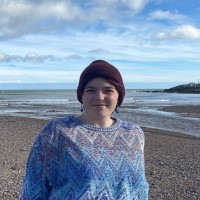
University of Aberdeen
Supervisor: Jason Holland
Personal note:
Hi, I’m Lauren, originally from West Yorkshire but moved to Scotland 6 years ago and have been slowly moving across this beautiful country, from the West to the East. I studied my BSc in Marine Vertebrate Zoology at Bangor University, and this is where my passion for fish, aquaculture and sustainability arose. After my degree I worked for 18 months in the aquaculture industry before moving to Marine Scotland Science for 3.5 years where I looked at the interactions between wild salmonids and aquaculture farms using tag telemetry. I was then lucky enough to attain an EASTBIO PhD post at Aberdeen University, and will be working with my supervisors Dr Jason Holland, Professor Sam Martin, and Dr Sean Monaghan (University of Stirling) who are leading experts in fish immunology. For my project I hope to understand in depth the interactions between stress and immune response in Atlantic Salmon by investigating how key stress hormones and immune proteins influence immune and endocrine cells respectively. I also hope to see how the stress impacts the immune response and if this changes during the different stages of smoltification of the salmon. By finding these answers I hope to increase resilience in farmed salmon through photoperiod manipulation or functional feed.
When not enthusiastically studying fish, you will find me at the beach, hiking through forests or curled up on the sofa crocheting.
Eileen Clemens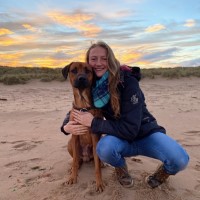
University of Aberdeen
Supervisor: Professor Jonathan Pettitt
Personal note:
Hi, I’m Eileen and I will be working in the Aberdeen Worm lab to investigate mRNA methylation and how this impacts animal gene expression. Although we know that lack of the enzymes methylating at the 5’ end of mRNAs has severe consequences, little is known about the underlying mechanisms or the function of these methylations.
Prior to my PhD I completed a double bachelor’s degree in Applied Biology and Genetics (Immunology), followed by a master by research in Aberdeen on stem cell profiling in murine models of aniridia-associated keratopathy.
When I’m not in the lab, I very much enjoy hiking with my dog, horse-back riding, playing basketball and reading as many books as I can get my hands on.
Mariam D'Ippolito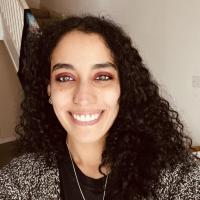
University of Aberdeen
First supervisor: Prof Pieter van West
Second supervisor: Dr Virtu Solano Collado
Personal note:
Molecular Charactorisation of Ricin-B Effector Proteins in Saprolegnia parasitica.
Hi! I am Mariam. I moved to Aberdeen in 2016 to do an MSc in Immunology, where I worked on Salmonella for my research project. After working for a few years, I decided to go back to studying and I completed an MSc in Molecular Medicine and I worked on a project about gene regulation and conserved polymorphisms associated with anxiety. I always wanted to go on a doctoral journey so I joined Prof Pieter van West team. My research project involves investigating pathogenic effector proteins in Saprolegnia parasitica and how they drive the infection mechanisms of saprolegniosis in fish.
Outside of the lab, I enjoy playing video games, movies, reading and swimming.
Federico De Filippi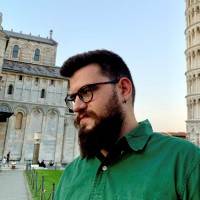
University of St. Andrews
First supervisor: Julie Harris
Personal note:
Hello! I will be studying at the School of Psychology & Neuroscience at the University of St Andrews, under the supervision of Prof Julie Harris and Dr Akira O’Connor. I will investigate why warning coloration (e.g., high-contrast stripes or spots) is an effective visual deterrent against predation, using psychophysical experimentation and computational modelling.
Warning patterns in nature are a classic example of stimuli that have likely evolved to be perceived as ‘salient’ or ‘memorable’, and yet a quantitative, neural-level definition of pattern memorability remains elusive. Recent advances in computational cognition allow us to combine behavioural data and convolutional neural networks to quantify cognitive properties of an image from pixel patterns: we will be using these techniques to understand what makes a pattern conspicuous and memorable.
Prior to this, I studied experimental psychology (MA, MRes) at the University of Aberdeen, with an emphasis on vision science. In Aberdeen, I conducted research projects on understanding the relationship between human eye movements and image statistics, and more recently worked as a research assistant on an ESRC-funded project about the sensory and cognitive basis for natural behaviour in Virtual Reality.
Awards: Anderson Prize for Best Master of Research Student (2021, University of Aberdeen)
Alexander Dindial 
University of Stirling
First supervisor: Professor James E. Bron
Personal note:
Hello! My name is Alexander Dindial, and I am researching novel in vitro assay systems for the salmon louse (Lepeophtheirus salmonis), a tremendously damaging parasite of salmon aquaculture worldwide. I seek to use my previous knowledge and experience from my education at Binghamton University and Johns Hopkins University to exploit cell culture techniques to decrease the use of live fish for studying lice. Ultimately, I hope that my work will help improve animal welfare and provide a new and exciting means of studying salmon lice.
Suzanne Drennan
University of Stirling
First supervisor: Darren Green
Second supervisor:
Third supervisor:
PhD project title: Machine learning for improved management practices in recirculation aquaculture systems
Personal note: To follow
Broc Drury
University of Edinburgh
Supervisors: Dr Calum Bain (Edinburgh), Dr Gareth Jones (Edinburgh) and Dr Mairi McLean (Dundee)
Personal note: Machine learning for improved management practices in recirculation aquaculture systems
Hey, my name is Broc! My project will study the interactions between monocytes being recruited to the gut and structural tissue such as endothelial cells and fibroblasts. This will help us to understand why and how circulating monocytes have a tendency to obtain a proinflammatory phenotype during Inflammatory Bowel Diseases (IBD) such as Crohn’s disease upon entering the gut. My project will involve looking at single cell RNA sequencing data to ask which receptor-ligand pairs may be most important in causing monocyte to macrophage differentiation in health and disease. Once promising receptor-ligand pairs have been identified, in-vitro co-culture systems will be designed to interrogate these ligand-receptor mechanisms as well as downstream signalling pathways. We also aim to look at the effects on monocyte-macrophage kinetics in the guts of mice with differing microbiomes, comparing standard specific pathogen free (SPF) mice, to mice with a microbiome more similar to wild mice. Understanding the mechanisms responsible for macrophage differentiation upon entry to the gut will allow us to look at ways to modulate macrophage function. In the case of IBD, this will eventually enable us to utilize the ability of newly differentiated macrophages to downregulate inflammation and aid in gut repair.
In my spare time I train and compete in triathlons at an age group level, I am part of a newly formed triathlon club based in Edinburgh called ‘Triworks Edinburgh’.
Emma Dumble
University of Edinburgh
Supervisors: Dr Tim Czopka (University of Edinburgh) and Prof. Lynda Erskine (University of Aberdeen)
Topic title: Identifying mechanisms by which neuron-oligodendrocyte interactions regulate nervous system function and dysfunction using zebrafish as model
Personal note:
Hi, I’m Emma! I have been working for the past year as a Research Assistant in the lab of Dr Tim Czopka in the University of Edinburgh, and I am delighted to take the plunge and start a PhD here with co-supervision from Prof Lynda Erskine (University of Aberdeen).
My project is focused on investigating the non-myelinating roles of oligodendrocyte precursor cells (OPCs) during brain development. Specifically, I will be looking at OPC:neuron interactions and how OPCs might be regulating the precise connectivity within the visual system. To investigate this, I will utilise Zebrafish as a model organism, as they rapidly develop a functional nervous system and are amenable for genetic and physiological manipulations of both cell and network function. Zebrafish are also accessible for high-resolution optical and functional imaging in intact living animals.
Prior to working in the Czopka lab, I completed a BSc in Biomedical Science at Cardiff University before moving to Paris to study a two-year Master’s in Developmental Biology at the Sorbonne University. When I am not in the lab (or with my nose in a book) I like to explore, either going to galleries and museums in the city or hiking in the surrounding nature.
Alexander Edwards 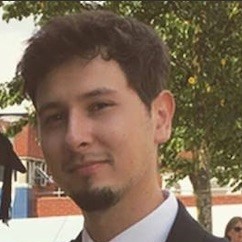
University of Edinburgh
First supervisor: Jelena Baranovic
Personal note:
I will be studying for my PhD at The University of Edinburgh under the supervision of Dr Jelena Baranovic (primary supervisor) and Prof David Wyllie (secondary supervisor). In my project, I will be conducting single-channel electrophysiological recordings on a mutant variant of the AMPAR-type glutamate receptor - in an attempt to characterise its functional properties in health and disease. Prior to starting my PhD, I read Biochemistry BSc and Pharmacology MSc at University College London (UCL). My interest in ion channel physiology derives from my postgraduate research project; I investigated the role of axonal KV7 channels in shaping the excitability of newborn hippocampal granule cells. I have also worked as a Research Assistant under Prof Mala Shah at UCL and completed a studentship project funded by the British Society for Neuroendocrinology.
Sezny Gall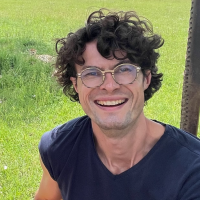
University of St. Andrews
First supervisor: Karen Spencer
Personal note:
Bonjour, I am a poultry and swine veterinarian interested in behaviour and animal welfare. After my veterinary degree, I completed a poultry health and welfare residency in North Carolina in the United States where I had three additional years of specialized training in poultry medicine and welfare research. I then returned to clinical medicine in France, and this mix of having welfare research training and field medicine experience led me to pursue a PhD in animal welfare and examine different poultry production systems across the word. These values are at the core of my EASTBio PhD project in Prof. Karen Spencer’s lab at St Andrews.
The objective of my PhD is to understand the cause of high mortality in keets (i.e. baby guinea fowl) raised by small holder farmers in Ghana. These guinea fowls are primarily raised extensively, roaming freely all day and sleeping in coops or perching at night. Guinea fowl eggs are most of the time incubated by a chicken hen and she will raise them as her own. Most mortality occurs during the first 6 weeks of life and ranges from 60 to 100%, which is very high. We will investigate the underlying mechanisms for this high rate by improving nutrition, housing and, considering genetic factors. The demand for Guinea fowl meat is high in Ghana and could contribute to improved human nutrition, so having more birds to sell at the end of the growing period could have a direct impact on improving income and livelihoods for Ghanaian producers and be adapted to other areas where Guinea fowl are raised.
Rosie Gallagher
1st supervisor: Philip Murray
2nd supervisor: Kim Dale
Personal Note
Hello, I am Rosie Gallagher, I did my Undergraduate and MSc by Research at the University of Dundee and I continued to do a PhD. My Research is looking at pattern formation of cells via Notch Signalling using computational methods. I am studying these patterns in the context of somitogenesis, which is the process of skeleton formation in the embryo. When I am not studying, I enjoy drawing, painting, skiing, and hiking (on nice days). I also really enjoy cooking. I am the EASTBIO student Rep for Dundee, so feel free to contact me if you have anu queries, I am always happy to help!
Robyn Greene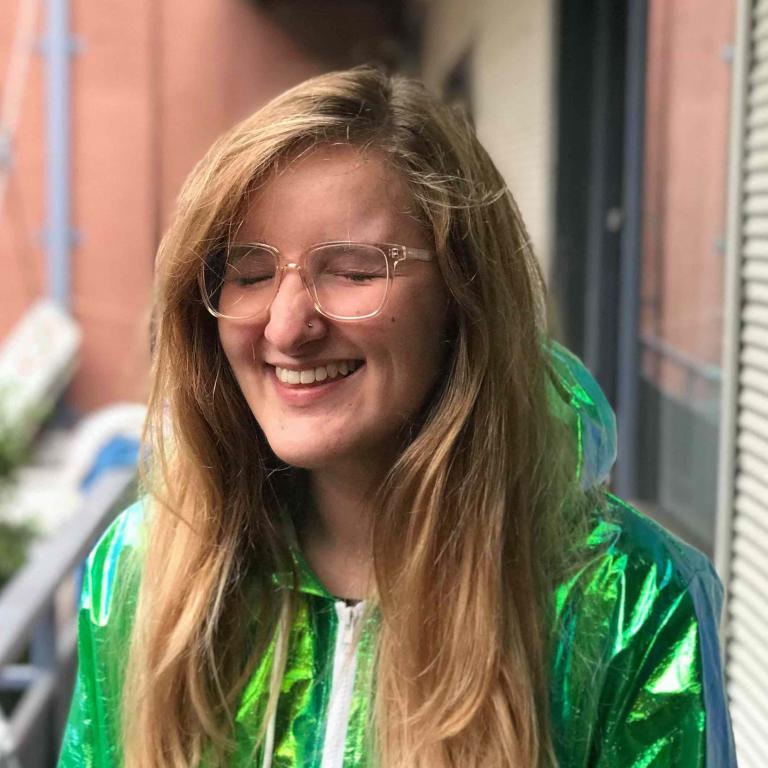
University of Edinburgh
Supervisors: Professor Matthias Hennig (School of Informatics)
Personal note:
Hi everyone! I am Robyn and I graduated from The University of Edinburgh with a Master's of Informatics (MInf) in 2022. I became interested in the applications of computational modeling in neuroscience during my master’s project looking into improving analysis reliability for extracellular neural recordings. For my PhD, I am investigating computational methods which can help us to uncover how neural dynamics give rise to behaviour. I am working under the supervision of Professor Matthias Hennig in the Institute for Adaptive and Neural Computation (Informatics), in collaboration with experimental colleagues in CDBS. I enjoy teaching and am regularly involved in courses including Machine Learning Theory and Cognitive Science. I am also the Postgraduate Representative for the People & Culture Committee (Informatics, UoE).
In my spare time, I enjoy running, swimming and cooking for friends!
Marina Hamaia
University of Edinburgh
First supervisor: Professor Adele Marston
PhD project title: How are kinetochores remodelled for chromosome segregation during meiosis?
Personal note: To follow
Emma Hardy
University of Dundee
First supervisor: Martin Balcerowicz
PhD project title: Deciphering the role of translation in temperature-controlled development
Personal note: To follow
Simon Harnqvist
University of Edinburgh
Supervisors: Konrad Lohse, Simon Martin
Personal note:
I'm Simon and I study the formation of new species from a genomics perspective, using European butterflies as a model system. I was previously at York for my BSc where I worked on the population genomics of the tropical parasite Leishmania. I also did a placement year at GSK where I was part of a team that developed a method to develop drugs collaboratively between pharmaceutical companies using machine learning, while preserving privacy and security.
Jack Henderson 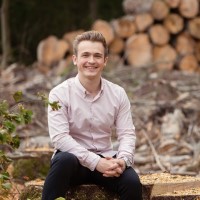
University of Aberdeen
Supervisor: Cecile Gubry-Rangin
Personal note:
Hi, my name is Jack! I am an EASTBIO funded Environmental Microbiology PhD student at the University of Aberdeen and my research is focused on plant inhibition of nitrification, with the aim of developing more sustainable agriculture by preventing nitrogen loss. I graduated with a BSc (Hons) in Bioscience with Biomedical Science in 2020 from Robert Gordon University. Following graduation, I joined the National Collection of Industrial, Food and Marine Bacteria (NCIMB) where I worked as a Molecular Microbiologist, specialising in pathogen handling. When I am not in the lab, I enjoy watching American Football and playing golf!
Andreas Holmqvist 
University of Dundee
First supervisor: William Farnaby
Industrial partner: Tocris Cookson Ltd. (Bristol, England)
PhD project title: Novel bifunctional chemistries for unbiased exploration of targeted protein degradation mechanisms
Personal note: To follow
Jack Horne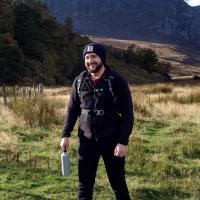
University of Aberdeen
First supervisor: Christine Watson
Personal note:
Hi everyone! I’m Jack (he/him) and I’m based in Professor Christine Watson’s lab up at SRUC Aberdeen. I’m extremely excited to be working into the metagenomics of soil, particularly investigating the functional genes involved in the nitrogen cycle, and how differing chemical management regimes have altered the microbiome composition. Previously, I graduated from the University of Aberdeen, and during my time there I worked on a research project involving the microbial respiration in soil along a pH gradient and different crops, while also analysing the impact of shifting the entire field to a new location – I even got to present at the EGU General Assembly for this. I have also volunteered as the Disabilities Liaison Officer and COVID Officer at CASE ABDN during my third year of study, where I received enhanced training for EDI, and I also underwent training from R**e Crisis Grampian for Crisis Response. It was this role that inspired me to return to contributing towards EDI, and I’m excited to help make our institutions and programme a more inclusive place!
Hossein Talal
Institution: University of Edinburgh
First supervisor: David Gally
Industrial partner: Proteon Pharmaceuticals SA
PhD Project title: Understanding bacterial resistance to therapeutic phage cocktails in an animal model of infection
Personal note: To follow
Tesni Houlston 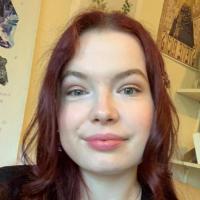
University of Aberdeen
Supervisors: Dr Fabio Manfredini, Dr Alan Bowman and Dr Mark Barnett
Personal note:
Hi I'm Tesni! I graduated with a BSc and MBiol in Zoology from the University of Leeds in 2022, and my final year project focused on studying magnetosense in bumblebees. This work inspired my interest in studying bees and their behaviour which led me to this PhD project at the University of Aberdeen. I will be studying deformed wing virus in honeybees, the effect of this virus on honeybee behaviour, learning and memory formation and investigating the link between these behavioural changes and the viral loads and location of the virus in the brain. Outside of the lab I enjoy knitting and crocheting, reading, yoga and walking my dog (a high energy Border Collie who loves adventures)!
Alasdair Iredale 
University of Dundee
First supervisor: Dr Sarah McKim
PhD project title: Your Best Face Forward - how cereals regulate their epidermal surfaces
Personal note: To follow
Sonya Kalakonda 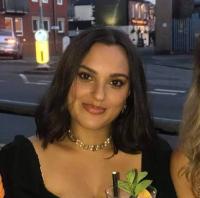
SRUC/ University of Edinburgh
First supervisor: Peter Hoebe
Personal note:
Hello, I'm Sonya (she/her) and I am starting my PhD at SRUC and The University of Edinburgh. I will be investigating the use of legumes in cropping systems to improve nitrogen use efficiency and decrease GHG emissions. Prior to this I did a BSc in Environmental Science at the University of Manchester and an MSc in Biodiversity and Conservation at the University of Sheffield. I have an interest in ecosystem science and hope to pursue a career in research in this field.
In my spare time I like to read fiction, practice yoga and spend time walking outdoors. I also love secondhand/vintage shopping!
Shreya Kashup
University of Dundee
First supervisor: Professor Julian Blow
Second supervisor:
Third supervisor:
PhD project title: The regulation of chromosome replication by DBF4-Dependent Kinase
Personal note: To follow
Martyna Kasprzyk
University of Edinburgh
First supervisor: Giovanni Stracquadanio
Industrial partner:
PhD project title: Transparent Deep Learning for Directed Protein Evolution
Personal note: To follow
Maheshika Kurukulasuriya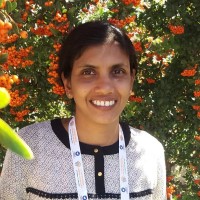
University of Aberdeen
Supervisors: Bernt Muller and Jonathan Pettitt
Industrial partner: BioAscent Discovey Ltd
Personal note:
Hi, I’m Maheshika. I completed Bachelor of Veterinary Science Degree from University of Peradeniya, Sri Lanka and won the Gold Medal for best performance in Veterinary Medicine. Then I complete my MSc in Animal Science, Postgraduate Diploma in Applied Statistics and Master of Philosophy from University of Peradeniya, Sri Lanka. Currently I'm a PhD student attached to the Institute of Medical Sciences, University of Aberdeen. My PhD research project involves understanding the molecular machinery that directs nematodes spliced leader trans-splicing, using the model nematode C. elegans. Thereby to identify or engineer novel compounds as inhibitors of the spliced leader trans-splicing machinery.
In my spare time I like to go on hikes and visit historical places.
Zhuoen Lu
University of Aberdeen
Supervisors: Jie Sui and Dewei Yi
Personal note:
My name is Zhuoen and I am starting my PhD project at the University of Aberdeen under the supervision of Professor Jie Sui and Dr Dewei Yi. My project will be focusing on using interdisciplinary methods, including psychological experiment designs, biomedical signal processing and machine learning models, to discover an AI-based approach to predict changes in self-perception, as well as the relationship to cognitive decline. My research aims to find a potential way to slow down the deterioration of cognitive decline in older people.
I am a student with a multidisciplinary education background. Previously, I received my Bachelor of Engineering degree in Communication Engineering from Dalian Maritime University, China in 2019, and my Master of Science degree in Signal Processing and Communications from the University of Edinburgh in 2020. I conducted my MSc dissertation project aiming to use time-frequency analysis to demonstrate dynamic functional connectivity during seizures in rats with SYNGAP1 haploinsufficiency. After my MSc programme, I continued to work with Dr Javier Escudero Rodriguez and Dr Alfredo Gonzalez-Sulser for further research based on the results of my MSc dissertation project. As one of the first co-authors, my results have been involved in a recent publication accepted by Journal Brain Communications. I received my Master of Research degree in Psychology from the University of Aberdeen in 2022. I conducted my MRes dissertation project supervised by Professor Jie Sui, aiming to use multidisciplinary methods to demonstrate dynamic Alpha connectivity between frontal and occipital regions during self-prioritisation. I am also a temporary part-time research assistant at Jie’s lab. In my free time, I enjoy cooking, travelling and fitness.
Nicole Maffezzini 
SRUC/ University of Edinburgh
First supervisor: Rick D'Eath
Second supervisor:
Third supervisor:
PhD project title: Exploring the genetic determination of aggressive behaviour in adult female pigs to improve human safety and animal welfare
Personal note: To follow
Jessica Matthews 
SRUC/ University of Edinburgh
First supervisor: Jolanda van Munster
PhD project title: Understanding detection and colonisation of lignocellulose by anaerobe fungi to improve agricultural waste valo
Personal note: To follow
Steven McPherson 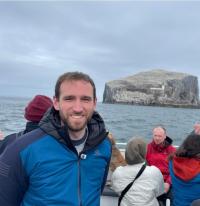
University of Aberdeen
First supervisor: Carol Munro
Personal note:
Hello, I’m Steven and my research project will be conducted at the University of Aberdeen in the Aberdeen Fungal Group and will look to further investigate the use of monoclonal antibodies targeting fungal cell wall proteins, for a potential use in therapeutics or diagnostics. Due to the current rise in antifungal drug resistance, it has been necessary to develop novel antifungal drugs to fight fungal infection. My project aims to extensively characterise the binding interactions of our lead antibodies using heterologously expressed cell surface proteins, short peptide sequences, and fungal cells from different clinical isolates.
Prior to beginning my PhD, I studied Immunology BSc at the University of Aberdeen. For my honours research project I studied the interaction of the fungal pathogen C. auris with two key innate immune receptors. I then worked for Quotient for four years, a company specialising in immunohaematology.
In my free time I enjoy playing basketball, running, hiking and doing anything outdoors.
Andrew Nicoll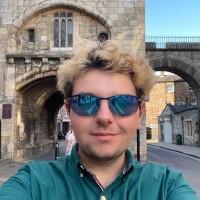
University of Edinburgh
First supervisor: Professor Ramon Grima
Personal note:
Hi! I'm Andrew and I'm just starting my PhD at the University of Edinburgh. I graduated from the University of York in 2022 with an integrated master's degree in mathematics (MMath). It was at York where I began studying applications of mathematics in biology. My master's project involved constructing a population genetics model to estimate the rate of facultative sexual reproduction in populations of the single-celled parasite Leishmania. I'm continuing my interest in mathematical biology with my PhD project, as a member of Grima Group (https://grimagroup.bio.ed.ac.uk/home), where I will be constructing mathematical models of gene expression and RNA and protein synthesis.
In my free time I enjoy running, particularly parkrun, which I am excited to try Edinburgh's several courses, and I enjoy visiting museums and learning history.
Andy Nordqvist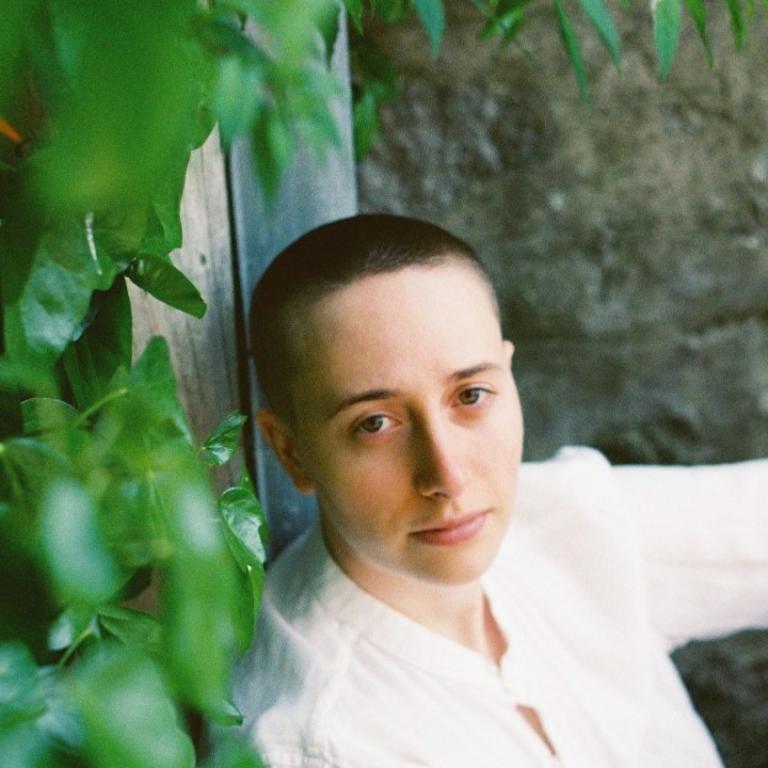
University of Aberdeen
First supervisor: Dr Rama Chakravarthi (University of Aberdeen)
Second supervisor: Dr Dhanraj Vishwanath (University of St. Andrews)
Personal note:
Hi there, my name is Andy (they/them). In June of 2022 I graduated with a MA (Hons) in Psychology from the University of Aberdeen, where I had the opportunity to work as a research assistant for Dr Madge Jackson and complete two research internships supervised by Dr Rama Chakravarthi. These work experiences allowed me to further develop my interest in visual perception and also drew me to the fascinating field of neuroaesthetics.
During my first internship (funded by the Development Trust) I conducted two studies to determine whether grouping displays of dots using similarity cues leads to predictable underestimation of the numerosity of the displays. My most recent internship was a Carnegie Vacation Scholarship and this experience formed the preliminary work for my PhD project. The central question of my research was whether aesthetic preferences are rational. To answer this, I used computer-generated fractal images and pictures of furniture and architecture which participants rated according to their complexity and how visually pleasurable they were (both correlated with beauty). I then used maximum likelihood difference scaling to see whether people's preferences aligned with these ratings.
As I continue to assess the rationality of beauty preferences in my PhD research, I will use electroencephalography to explore the neural organisation of aesthetic experiences. In particular, I will use the framework of rational choice theory (RCT) to assess and analyse the results using cognitive models of aesthetics.
In my spare time I enjoy playing Sims, cooking with friends, and spending time with animals (especially cats).
Hannah Peaty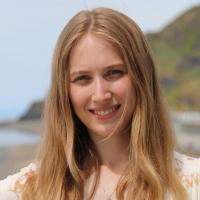
Moredun Research Institute/University of Edinburgh
First supervisor: Dan Price
Personal note:
Hi, I’m Hannah. Prior to starting my PhD, I completed a BSc in Veterinary Bioscience and an MRes in Parasite Control at Aberystwyth University. During my MRes, I worked with the Morphew group and investigated the global phosphoproteomics of Fasciola hepatica. I have recently started my PhD studentship at the Moredun Research Institute in partnership with the Roslin Institute. The overall aim of the project is to use ovine abomasum organoids to identify and characterise components of nematode extracellular vesicles (including Teladorsagia circumcincta and Trichostrongylus colubriformis) which are involved in host: parasite interactions. Outside of the lab, I enjoy exploring the city of Edinburgh and walking in the surrounding countryside. When it rains, I enjoy reading, baking, and having a coffee with friends.
Cristina Ponce Lilly 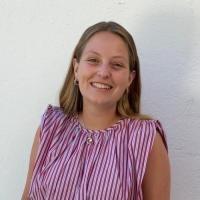
University of Edinburgh
First supervisor: Attila Molnar
Second supervisor: Alistair McCormick
Personal note:
Hello, I am Cristina Ponce, born and raised in Ecuador! I am a scientist with an interest in bringing science closer to society, especially by finding sustainable solutions to our everyday problems. My PhD project will focus on CRISPR-mediated precision gene editing in algae. I will be performing my PhD project as part of Dr. Attila Molnar’s lab (https://molnar.bio.ed.ac.uk/).
Before starting my PhD, I studied a BSc at the University of Navarra (Pamplona, Spain). During my 4 years at Navarra, I performed a research project on genetic markers associated to cardiac fibrosis resulting from myocardial infarction, to identify potential markers of interest for therapy development. After graduating from a 4 year BSc, I moved to Edinburgh and completed an MSc in Biotechnology at the University of Edinburgh and had the opportunity of carrying out an Industrial placement with MiAlgae LTD as part of my final MSc dissertation project. During this project, I discovered the potential that algae and microalgae hold for a sustainable future. Not only can algae capture carbon from the environment, but it could ideally serve as a platform for biotransformation, energy source acquisition, and byproduct or waste upcycling. The MSc served as an incredible experience, but after that 1-year program, I worked as a Research Associate II (for a year) at ASKBIO, a gene therapy company that employs AAVs as vectors for therapy delivery. Working as a researcher in a fast-paced industry like pharma, where it is in our hands to develop therapies for rare diseases, opened my eyes to how important it is to find queues on the biological mechanisms of action to develop any product or industrial strategy.
I am really excited to start this new experience, developing a novel project that might hold great potential for industrial applications, but also to increase the knowledge available on the use of CRISPR in photosynthetic organisms. I am a really social person that really enjoys sailing and hanging out with friends and when not in the lab will often be found traveling around the world or hanging out with friends, enjoying life!
Sofia Ratgauzer 
University of Edinburgh
First supervisor: Ian Chambers
Second supervisor:
Third supervisor:
PhD project title: How do interactions with partner protein enable transcription factors to direct cell identity?
Personal note: To follow
Alex Reiss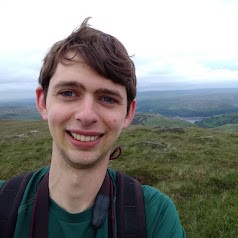
University of Edinburgh
First supervisor: Graham Stone
Personal note:
I’m interested in understanding ecology using phylogenetic comparative methods. The system I’m looking at in my project involves oak trees and herbivorous insects called gallwasps – they manipulate their plant hosts to produce a structure, called a gall, that houses the insect larvae. I aim to understand the different traits of gallwasps, including which plant species they attack, using statistical approaches to retrace these traits on the gallwasp phylogeny (evolutionary tree). By advancing our knowledge of plant-herbivore interactions, this should help identify threats to important crops in agriculture and forestry and enable us to predict what organisms could become novel pests.
I did my undergrad at the University of Sheffield in Zoology. Outside of study I enjoy running, hillwalking, birdwatching and attempting to play the fiddle.
Yuxin Shen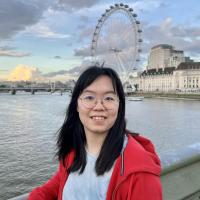
University of Edinburgh
First supervisor: Diego Oyarzún
Personal note:
Hi! I am Yuxin. I have recently started my PhD at the University of Edinburgh, under the supervision of Dr Diego Oyarzún. My research interests lie in the intersection of machine learning and synthetic biology, with a particular emphasis on deep learning methods for optimisation of protein production and the genotype-phenotype mapping problem. With deep learning pipelines, we may forecast protein production and radically improve strain performance. This can be helpful to accelerate cell factories development with a minimal experimental burden.
Before coming to Edinburgh, I obtained a BSc in Chemistry at Fudan University, and an MSc in Chemical Engineering at Imperial College. I also worked as an R&D Technologist at Unilever. In my spare time, I enjoy singing in the chorus, playing the guitar and exploring the city of Edinburgh.
William Smith 
University of St. Andrews
First supervisor: Stefan Pulver
Industrial partner: Cairn Research Ltd
Second supervisor:
Third supervisor:
PhD project title: Mechanisms of Resilience in Neural Networks for Locomotion
Personal note: To follow
Thomas Smith-Zaitlik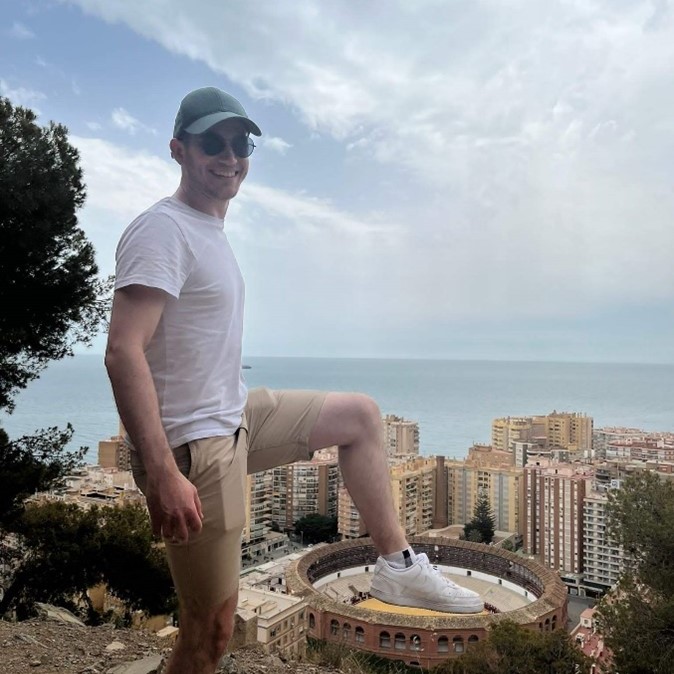
University of Edinburgh
First supervisor: Gavin Paterson
Personal note:
Hello, I’m Tom. I studied my BSc in microbiology and my MRes in molecular microbiology at Nottingham Trent University. I then spent eight months working as a QC microbiologist at a gene therapy company in London.
My project is looking to isolate and study phages against the bovine mastitis pathogen Streptococcus uberis. Bovine mastitis causes major economic losses due to lost milk production, vet fees and use of antibiotics. The use of antibiotics in agriculture has led to increased resistance and now we need alternative therapeutics. I am hoping to isolate and then characterise some phages active against S. uberis with the hopes of them being used as an antimicrobial treatment in the future.
Ishana Sood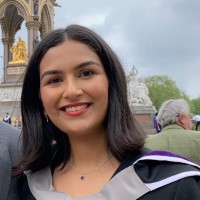
University of Edinburgh
First supervisor: Professor Susan Rosser
Second supervisor:
Third supervisor:
Personal note:
Hi, I'm Isha! During my MRes in Bioengineering at Imperial College London, I developed an interest in synthetic biology, bioengineering and interdisciplinary approaches while studying yeast using microfluidic tools. However, I missed topics such as biochemistry, human disease biology, immunology and pharmacology from my undergraduate studies (BSc Hons Biotechnology at the University of Surrey). Therefore, I am excited to join the Rosser lab for my PhD project which integrates these interests towards developing RNA apatmer-based tools for control in gene and cell therapies. Outside the lab I enjoy yoga, trying out new recipes, and getting lost on foot in new places with a camera.
Eleanor Stamp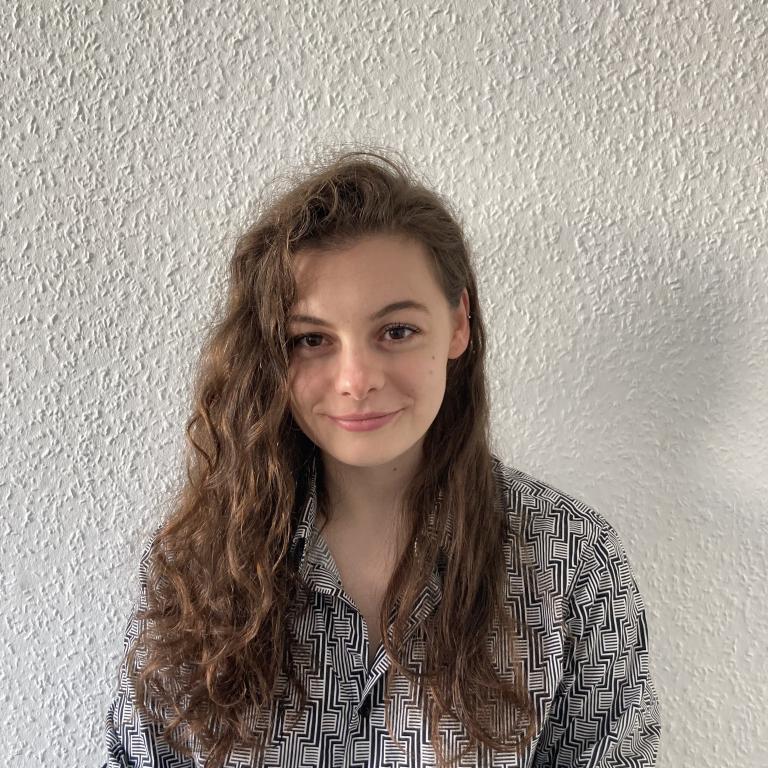
University of Edinburgh
First supervisor: Kathy Evans
Personal note:
Hi, I’m Eleanor! I will be working in the Evans Group in the Institute of Genetics and Cancer in Edinburgh and will be combining neuroscience and genetics to investigate the underlying mechanisms in DNA damage and age-related cognitive decline. Specifically, I will be exploring the role of the SORCS2 gene in double-stranded DNA break formation using in vitro neuronal cultures and aim to create a machine learning model to classify cellular phenotypes in a high-throughput manner.
I graduated from Cardiff University in 2020 with a BSc in Neuroscience and worked as a research assistant at Lund University in Sweden for a year, before completing my Masters in Integrative Neuroscience at Edinburgh.
Outside of the lab I enjoy baking, climbing and martial arts.
Robert Stewart
University of Edinburgh
Supervisors: Diego Robledo, Beatriz Orosa and Sam Martin
Industrial partner: Zoetis Ltd
Personal note:
My PhD project is being supervised by Diego Robledo, Beatriz Orosa and Sam Martin. We plan to build on the work performed at the Roslin institute where they identified a ubiquitin ligase gene upregulated in disease resistant fish. Our goal is to characterize the ubiquitin ligase enzyme associated with this gene, to discover its targets and how it interacts with the viral proteome, whilst also exploring the implications that ubiquitin modification can have on vaccines. Prior to starting at the Roslin institute, I graduated from the University of York with a Masters of Biochemistry, after which I worked at a large contract research organisation in drug discovery by ELISA and Mass Spectroscopy. In my free-time I love to go to the gym, walk up mountains (or hills), drink delicious coffee and cook nice food. My main hobby is fishing- I have been obsessed with fish all my life, and this was partly what led me to want to do a PhD in aquaculture.
Josephine Stewart 
University of St Andrews
First supervisor: David O'Hagan
Second supervisor: Sergio Dall’angelo
Third supervisor: Adriana Tavares
PhD project title: Bio-orthogonal association of Janus-face fluorocyclohexyl rings for PET tumour imaging and delivery of drugs to cancer cells
Personal note: To follow
Kallen Sullivan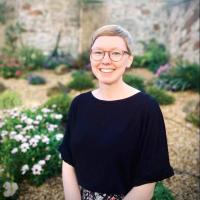
University of Edinburgh
First supervisor: Tim Bean
Personal note:
How can one organism infiltrate the immune cells of another, and what could this interaction indicate for ocean health, aquaculture and oyster reef restoration in Scotland? By the end of my PhD, I hope to shed light on these questions and more!
Before joining the EASTBIO 2022 cohort, I earned my BSc in Marine Biology from the University of St Andrews and my MSc in Applied Marine and Fisheries Ecology from the University of Aberdeen. Additionally, I have gained valuable experience in the fields of parasitology, cellular biology and marine ecology from previous research positions at Johns Hopkins University and Woods Hole Oceanographic Institute. I hope to combine my prior experiences and my love of all things ‘oyster’ into my PhD research at the Roslin Institute.
In the UK, there are several groups attempting to restore native European flat oyster, Ostrea edulis, populations by transplanting animals from healthy aquaculture sites to locations where they have been historically present. Although this sounds like a clear solution, when you transplant the oysters, you also run the risk of transplanting pathogens and disease. Bonamia parasites severely limit restoration attempts by infecting the oyster’s haemocyte cells, which typically protect the oyster against infections, often resulting in mortality. To re-establish populations of native oysters in Scotland, we need to better understand the biology and movement of pathogens to make more informed management solutions. Under the supervision of Dr. Tim Bean, I am excited to be researching the biology and genetics of Bonamia to:
- Understand the phylogeography of parasites from infected UK sites
- Develop methods, utilising metabolomic techniques, to maintain parasite cell cultures in vitro
- Design trials of infections in individual animals, tissue culture explants and haemocyte cultures
- Compare the infection process between tolerant and naïve oyster populations
Max Charles Vallarino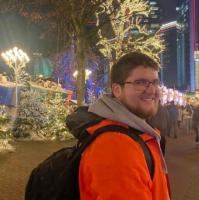
University of Aberdeen
First supervisor: Sam Martin
Second supervisor: Vicky Sleight
Third supervisor: Dan Macqueen
Personal note:
Hi there! My name is Max, I am originally from Italy, and my PhD project will focus on elucidating the key role of the insulin-like growth factor pathway in facilitating crosstalk between health and growth systems in Atlantic salmon. This project will examine gene function, both in vivo and in vitro, using gene editing approaches to define how energy is allocated during immune stimulation. I am very excited to spend the next four years working on a project that has the potential to help improve farmed fish production in the long term!
I graduated in summer 2022 from the University of Aberdeen with a degree in MSci Biological Sciences. During the course of my MSci degree, I had the opportunity to carry out three separate research projects on topics ranging from gill health in Atlantic salmon to the genetic basis of a rare colour polymorphism in a species of intertidal isopod. Outside of research, I enjoy swimming and exploring the countryside near Aberdeen!
Alice Veiros 
University of St. Andrews
First supervisor: Mike Webster
Second supervisor:
Third supervisor:
PhD project title: Do fish cooperate to inspect predators?
Personal note: To follow
Christoph Wagner
University of Edinburgh
Primary supervisor: Andrea Weiße
Secondary supervisor: Nadanai Laohakunakorn
Personal note:
Guten Tag everyone! My name is Christoph, though most people immediately jump to Christopher for some reason. I'm originally from Cologne, Germany, where I started studying Biology. However, after discovering my interest for Bioinformatics, I betrayed my hometown and finished my Bachelor's of Quantitative Biology in Düsseldorf instead. There, I also appended my Master's studies in the discipline of Synthetic Biology, trying to quantitatively engineer the plant phenotype by means of genetic engineering. That project sparked a lasting fascination with interfacing nature and technology.
Now having arrived in the beautiful Scottish capital of Edinburgh, I am studying the ability of cells to self-regenerate. Split between the groups of Dr. Weisse and Dr. Laohakunakorn, I conduct cell-free microfluidics experiments on transcription-translation systems and use those results to inform models of said systems to explore the parameters governing self-regeneration. This knowledge would be critical for the generation of fully synthetic minimal cells, which could revolutionise our understanding of the origin of life, the way we produce and deliver drugs, provide clean platforms for basic research and lots more!
Whenever I am not in a dark windowless laboratory, however, I like to write stories about sciency stuff on a blog, play the piano worse that I should be able after 15 years of trying, indulge in amateur woodworking or run around (usually in circles).
Erin Watson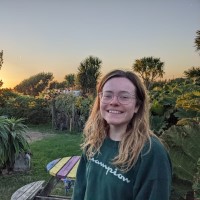
University of Edinburgh
First supervisor: Elaine Emmerson
Personal note:
Hello! My name is Erin, I will be working in the Emmerson group at the University of Edinburgh where we will be investigating the potential to manipulate macrophages to enhance regeneration of the salivary gland following radiation-induced injury as a result of head and neck cancer treatment in partnership with the Wilson group at the University of Aberdeen. Damage to the salivary gland is a common side effect of radiation treatment for head and neck cancer and causes chronic dry mouth syndrome amongst other debilitating symptoms for which we have limited treatment options. Previous studies have identified distinct populations of macrophages within the salivary gland which are essential for the salivary gland to repair radiation-induced damage. By characterising these populations, we hope to identify and programme pro-regenerative subsets which represent a potential treatment option for salivary gland injury in this context. Outside of the lab, I enjoy live music, hiking and cooking/baking.
Sophie Winterbourne
University of Edinburgh
First supervisor: Dr Atlanta Cook
Second supervisor:
Third supervisor:
PhD project title: Seeing double: how do dsRNA binding pseudoenzymes regulate vertebrate mRNAs?
Personal note: To follow
Tamsin Woodman
University of Edinburgh
First supervisor: Laura Ross
Second supervisor:
Third supervisor:
PhD project title: Developing an insect model for studying epigenetics and aging
Personal note: To follow
Raffee Wright 
University of Edinburgh
First supervisor: Valerie Wilson
Personal note:
Hello, my name is Raffee. I am an international student from the USA. I graduated in 2021 from Brown University with an honors Bachelor of Science in Behavioral Genetics. I then spent a year undertaking a post-baccalaureate program at the University of Pennsylvania where I led a research project in Dr. Paul Gadue's lab exploring the role of different genes in the development of diabetes. During my research career, I have been fortunate enough to work in multiple labs on various projects. I have studied genetic regulation in plants such as Arabidopsis thaliana, Solanum lycopersicum, and Zea Mays. I have researched the behavioral effects of alcohol on Drosophila melanogaster from different genetic backgrounds. Most recently I explored the function of novel genes in diabetes in human immortalized cells and stem cells.
I will now be taking my next step at the University of Edinburgh in Dr. Val Wilson's lab where I will explore the role of notochords to find how they are maintained and, in turn, how they interact with neuromesodermal progenitor cells to sustain axis elongation during embryogenesis.
Qifan (Leo) Yin 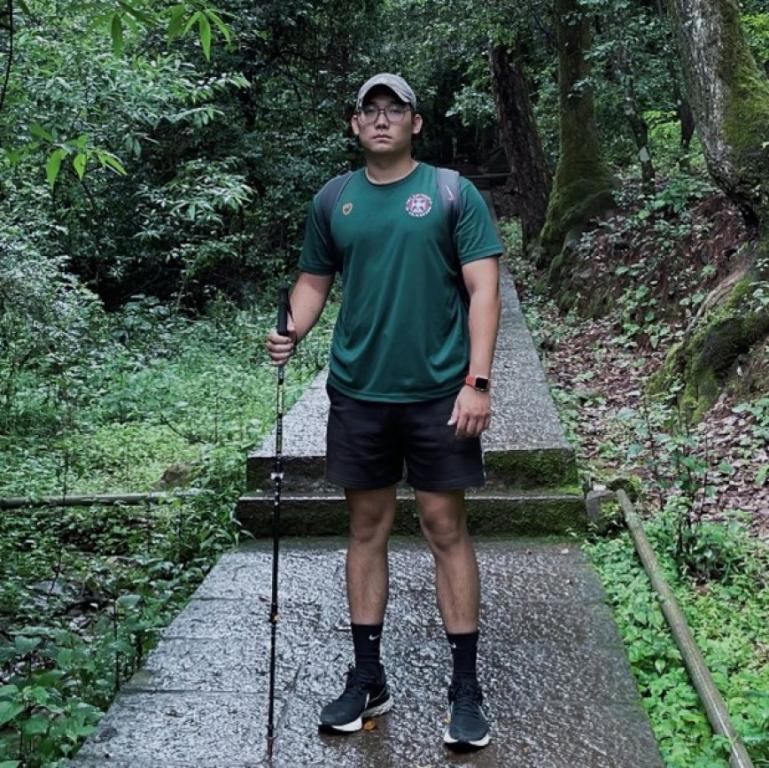
University of Edinburgh
First supervisor: Dr Luís Novo
- Assistant Supervisors: Prof. Bryne Ngwenya, Dr Margaret Graham, Dr Jennifer Carfrae
Personal note:
Haiyaa, my name is Leo! I graduated in 2020 with a BSc in Environmental Science from HKBU, and in 2021 I finished the MSc in Environmental Protection and Management from the University of Edinburgh / SRUC. I will be doing my PhD at SRUC and the School of Geosciences of the University of Edinburgh.
My research project will assess the nickel uptake ability of different alpine pennycress ecotypes (a plant that uptakes and hyperaccumulates an extraordinary amount of metals like zinc, cadmium and nickel) and determine the effect of microbial inoculation, biochar, phytohormones, and low molecular weight organic acids in the overall agromining process. Agromining (or phytomining) is a plant-based technique to retrieve valuable elements from metal-enriched soils. Also, this research project will provide valuable knowledge about mechanisms that can be useful to improve phytoremediation.
In my spare time I love playing rugby, going to the gym, grabbing a good coffee and going hiking. I enjoy any type of outdoor activities!











